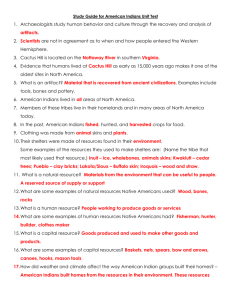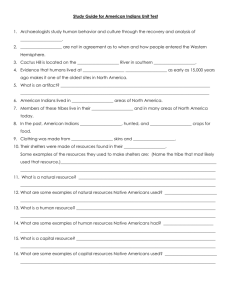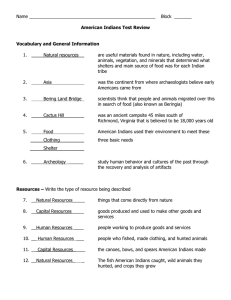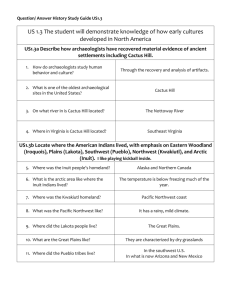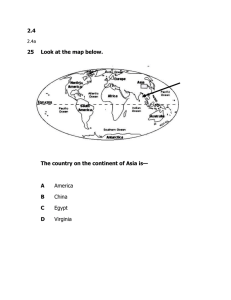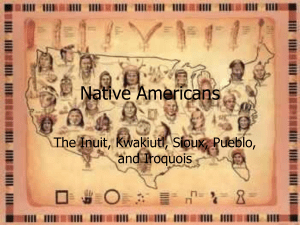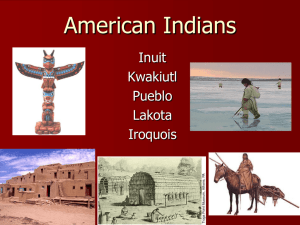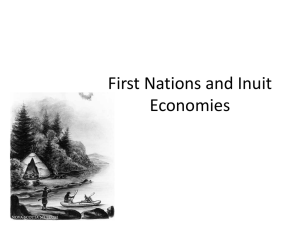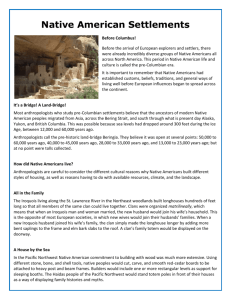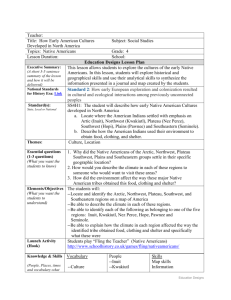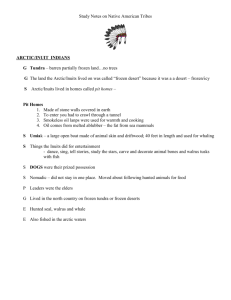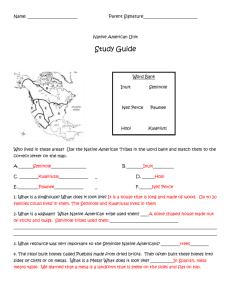Study Guide Unit 1
advertisement
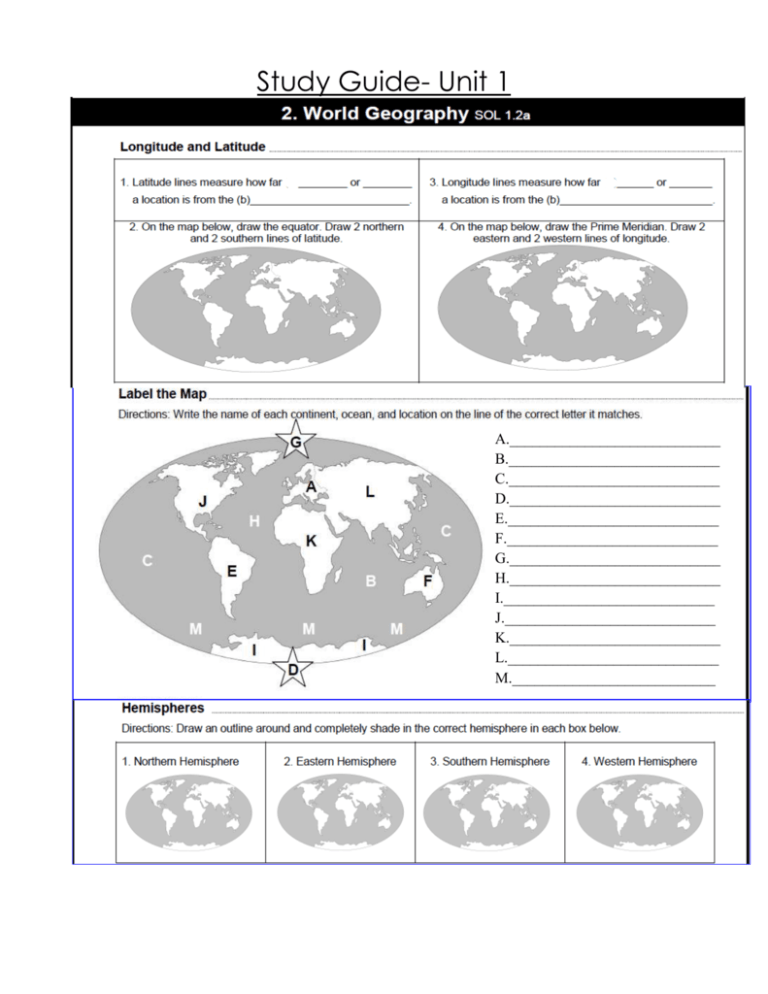
Study Guide- Unit 1 A.____________________________ B.____________________________ C.____________________________ D.____________________________ E.____________________________ F.____________________________ G.____________________________ H.____________________________ I.____________________________ J.____________________________ K.____________________________ L.____________________________ M.___________________________ ___ 1) dry grasslands A. Coastal Range ___ 2) varying elevations B. Basin & Range ___ 3) eroded mountains with rounded peaks C. Rocky Mts. ___ 4) the tallest & youngest mountains in N. America D. Great Plains ___ 5) fertile valleys in between 2 mountain ranges E. Interior Lowlands ___ 6) excellent harbors F. Appalachian Highlands ___ 7) wrapped around Hudson Bay; horseshoe shape G. Coastal Plain ___ 8) wide, sandy beaches H. Canadian Shield ___ 9) grassy hills along river valleys ___ 10) jagged mountains ___ 11) along the Atlantic Ocean and Gulf of Mexico ___ 12) lakes carved by glaciers ___ 13) oldest mountain range in North America ___ 14) grassy hills along river valleys ___ 15) flat land that gradually rises from east to west ___ 16) many rivers ___ 17) along the Pacific Ocean ___ 18) isolated mountain ranges RESOURCES Resource _____________________ Definition Things that come directly from ________________. Examples _____________________ _____________________ ___________________ who Goods produced & work to create goods & used to help make other provide services. goods and services. 1. 1. 1. 2. 2. 2. 3. 3. 3. ARCHEOLOGY Archeology is the study of human behavior and ancient ________________________. Archeologists study ___________________________________, which are clues such as pottery, bones, and tools. Archeologists in Virginia found very old arrowheads at a place called _________________________________________ which is along the ________________________ River. These arrowheads were made more than ____________________ years ago. Scientists DO / DO NOT agree on how or when people first arrived in the Western Hemisphere. American Indians Review Use the word bank to match the Indian groups with their descriptions. Some groups might be used more than once. A. Inuit B. Iroquois C. Lakota D. Kwakiutl E. Pueblo 1. ____ lived in the Southwest 7. ____ lived in tepees 2. ____ used wood for their shelters 8. ____ lived in the Eastern Woodlands 3. ____ also used wood for shelters 9. ____ lived in the Great Plains 4. ____ lived in the Northwest 10. ____ hunted whales, seals, & walrus 5. ____ lived in the Arctic 11. ____ igloos, pithouses 6. ____ adobe houses 12. ____ate fish such as salmon Pick the correct letter. 13. 14. 15. 16. The Indians that hunted this animal were ___. a. Inuit b. Kwakiutl c. d. Lakota Iroquois The Indians that lived in this type of house were ___. a. Inuit b. Kwakiutl c. d. Lakota Pueblo The Indians that used this type of shelter were ___. a. Inuit b. Kwakiutl c. d. Pueblo Iroquois The Indians that used this type of housing were ___. a. Inuit b. Pueblo c. d. Lakota Iroquois Use the map to write the names of the American Indian cultural regions. A- ________________________________ B- ________________________________ C- ________________________________ D- ________________________________ E- _________________________________
